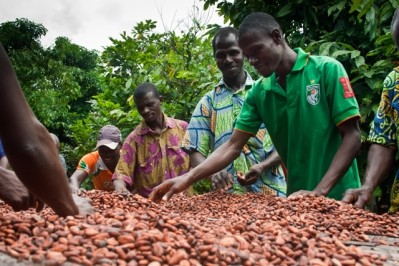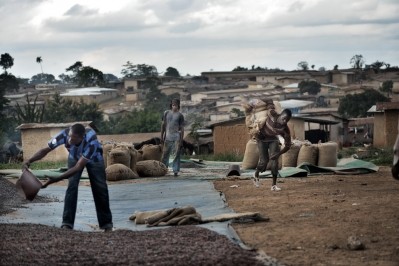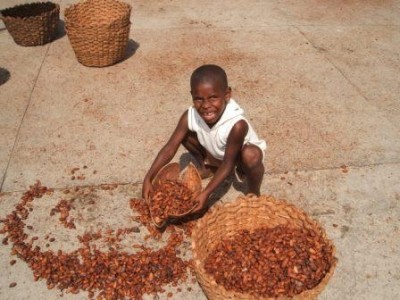Industry backs EU call on cocoa child labour and warns 100% certified is no guarantee

The European Parliament’s Trade Committee recently adopted a resolution and recommendations aimed at eradicating child labour in cocoa plantations in Africa.
Isabelle Adam, general secretary of the European Cocoa Association (ECA), told ConfectioneryNews.com that cocoa child labour was complex and could not be resolved by the EU alone.
She added that there were no guarantees that chocolate products that used 100% certified cocoa were free from child labour.
Development issue
“It’s not easy to affect change rapidly. There are no quick fix solutions.” she said.
The ECA, along with the Association of chocolate, biscuit and confectionery (CAOBISCO), the Federation of Cocoa Commerce (FCC) and the World Cocoa Foundation (WCF) wants to see “a holistic and coordinated framework” to affect change.
Asked what this meant, Adam said: “The EU cannot alone change the way the agricultural sector works.”
“If all the stakeholders involved play their part, from industry, to civil society, to governments (both in the consuming countries and the producing countries), we can effect sustainable change.”
She added that education was key because there was a low rate of literacy among farmers who tended to encourage their children to help on farms.
“You have to respect this tradition,” she said.
Does child labour benefit confectioners?
Asked whether stamping out child labour could negatively impact cocoa production and lead to price hikes hitting confectioner’s profits, Adam said: “There is absolutely no economic interest for us in having children involved.”
Similarly, Sabine Nafziger, secretary general of CAOBISCO told this site: “There is no direct link between prices of products to the final consumer and the achievements towards the eradication of child labour.”
Certification is no guarantee
Adam said that less than 35% of the world’s cocoa supply was certified.
She feared that if the EU allowed only 100% certified cocoa to be traded it would harm the incomes of thousands of farmers in Africa , lead to shortages and impact developing countries that rely on cocoa farming.
She added that it was not a given that 100% certified cocoa was not produced by a child because farms were not audited on a daily basis.
Fairtrade Foundation also says that it cannot provide guarantees, but would take immediate action following a breach.
“For the time being there is not a 100% guarantee. That’s why we need to be working on the root causes," said Adam.
According to the ECA head, poverty seems to be at the heart of the issue.








